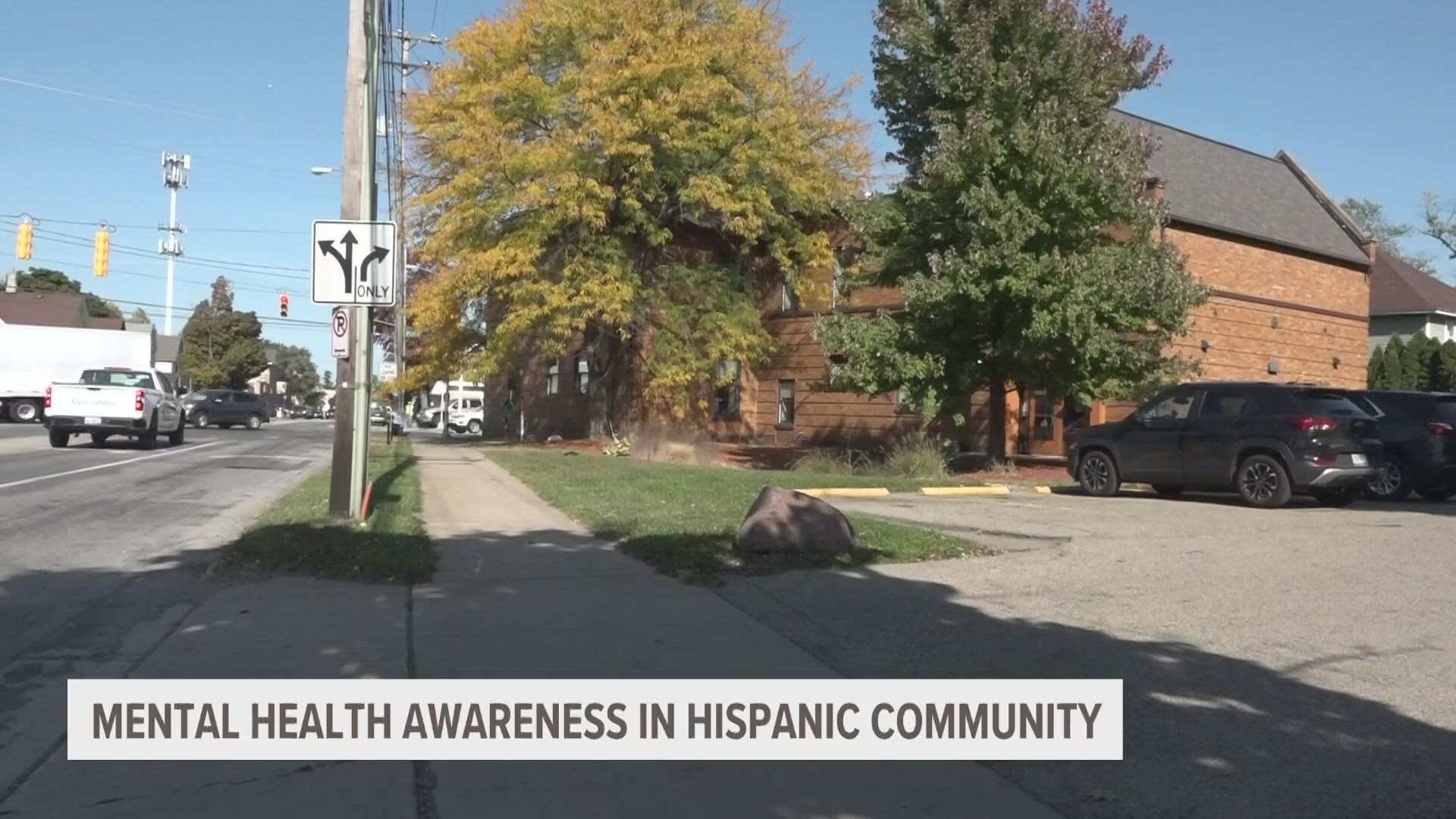GRAND RAPIDS, Mich. — The number of Hispanic-Americans seeking mental health care is much lower than the national overall average. In West Michigan, community leaders are raising awareness about the disparities during this National Minority Health Month.
While mental illness can touch anyone, certain groups may be disproportionately affected. It's estimated that roughly 35 percent of Hispanic-Americans receive treatment for mental illness each year, lower than the national average which is more than 46 percent.
Additionally, Hispanic-Americans use mental health services at about half the rate of white individuals per year, and more than half of Hispanic young adults ages 18-25 with serious mental illness may not receive treatment, according to the National Alliance on Mental Illness (NAMI).
"Our demand is very high in the community," Alexandra Lopez-Diaz, community support manager with the Hispanic Center of Western Michigan, says.
The non-profit organization works to address the disparities that community members face while seeking mental health care.
"We see a lot of our older generation here in our community. They're very distant from their emotions," Lopez-Diaz says.
She adds that there is a stigma surrounding mental illness that is passed down through generations.
"They're in a survival mode, so it's working, providing for their children. Being in that survival mode also impacts their children. So their children are also in a surviving mode in the way that one sees the world," she said.
There are multiple obstacles in the way when it comes to finding treatment, including barriers with insurance, technology, and language.
"Grand Rapids doesn't have that many Spanish-speaking providers," Lopez-Diaz says.
"One of the things that we can do is change the primary care setting," Dr. Kristyn Gregory, Blue Cross Blue Shield Michigan Medical Director for Behavioral Health, says.
She adds that by integrating primary care with behavioral health, and diversifying providers, that can help bridge the gap.
"Promoting diversity and having a physician workforce that is understanding and encompasses different cultures can offer a lot of important information to kind of tailor not only the mental health treatment, but the physical health treatment as well of their patients," Dr. Gregory says.
Both Dr. Gregory and Lopez-Diaz highlighted the resources available statewide and locally.
At the Hispanic Center of Western Michigan, they host mental health workshops once a month. There is also a mental health provider on-site at the center regularly, as well as three navigators to help connect people with a local provider.
Blue Cross Blue Shield Michigan says free or low-cost mental health services can also be found through the following:
- Community mental health: Michigan Department of Health and Human Services oversees community-based programs located in counties throughout the state.
- Federally Qualified Health Centers: These facilities provide health care for people with mild to moderate mental illness.
- Free or low-cost care locations: This Help with Care directory lists local free or low-cost facilities that provide dental and behavioral services. It’s a regional directory that can be downloaded or ordered by mail, at no charge.
- Safety net clinics: Many statewide clinics connected to non-profits, community organizations and faith groups can offer mental health services or patient referrals. For more information, click here.
►Make it easy to keep up to date with more stories like this. Download the 13 ON YOUR SIDE app now.
Have a news tip? Email news@13onyourside.com, visit our Facebook page or Twitter. Subscribe to our YouTube channel.

